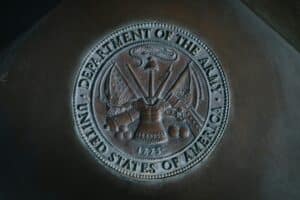Gun-rights advocates found success against waiting periods by convincing a federal judge to buck a trend that has been used to short-circuit the Supreme Court’s Second Amendment test.
US District Court Judge Lance Walker issued a preliminary injunction last week against Maine’s 72-hour waiting period for all gun sales. He determined that a blanket delay on the purchase of firearms likely violates the Second Amendment because no Founding-era analogue for the practice exists.
En route to reaching that decision, Walker first established the Second Amendment includes a right to acquire firearms. While that might seem obvious to the average person with even a cursory familiarity with the amendment’s text, it has proved surprisingly controversial among federal judges.
In fact, between the Bruen decision being handed down in June of 2022 and this month’s Maine ruling, not one federal judge had either blocked or struck down a waiting period. Yet, several have upheld them and similar commercial restrictions under the same literalist reading of the right to “keep” and “bear” arms that would exclude the actions required to obtain them. Under this line of thought, no historical analysis is required, and a given gun law is presumptively constitutional.
This “one weird trick” reading of the Second Amendment first reared its head in the context of waiting periods back in November 2023. At the time, US District Judge John Kane declined to issue a preliminary injunction against Colorado’s three-day waiting period law because he said the commercial purchase of a firearm does not implicate the right to keep and bear arms.
“After examining the language of the Second Amendment using the Supreme Court’s analysis in Heller, I find, for the purposes of Plaintiffs’ Motion, that the plain text does not cover the waiting period required by the Act,” Kane wrote in RMGO v. Polis.
“From this reading of the plain text, it is clear the relevant conduct impacted by the waiting period—the receipt of a paid-for firearm without delay—is not covered,” he added. “Still, Plaintiffs attempt to equate the words ‘obtain’ and ‘possess.’ But these terms are not equivalent.”
It again appeared multiple times last July as gun-rights groups sought to block Vermont and New Mexico’s three-day and seven-day waiting periods, respectively.
“The Court concludes that the ‘right of the people to keep and bear Arms’ does not facially include a right to immediately obtain a firearm through a commercial sale,” Judge William K. Sessions wrote in Vermont Federation of Sportsmen’s Clubs et al v. Birmingham et al. “The Court finds that the relevant conduct – acquiring a firearm through a commercial transaction on-demand – is not covered by the plain text of the Second Amendment. Plaintiffs may keep and bear arms without immediately acquiring them.”
“Today and in 1791, the normal and ordinary meaning of ‘keep’ is to possess and the normal and ordinary meaning of ‘bear’ is to carry,” Judge James O. Browning wrote in Ortega v. Lujan Grisham. “In concrete terms, the Waiting Period Act does not limit an individual’s ability to keep firearms in their home nor carry those firearms with them in public for self-defense.”
“Because the Second Amendment’s plain text does not cover the conduct that the Waiting Period Act implicates — purchasing a firearm — and because the Waiting Period Act’s burden on acquiring a firearm is not so onerous as to implicate rights the Second Amendment’s plain text does cover — i.e., possessing and carrying firearms — the Waiting Period Act is not presumptively unconstitutional at Bruen’s first step,” he concluded.
In this month’s Maine case, the state’s attorney general, Aaron Frey (D.), invoked those findings in defense of his state’s waiting period. He similarly claimed that the Second Amendment only protects the right to keep and bear arms already possessed and does not cover a right to acquire new ones. Unlike his predecessors in those other states, however, Judge Walker rejected that argument head-on, calling it “a curious construction indeed.”
“It is an interpretation that is not only unsupported by the text of the Constitution but one that makes the core right to keep and bear arms illusory if it is relegated to those arms in circulation at the time of the founding or through sales not subject to a background check,” he wrote in Beckwith v. Frey. “If a citizen cannot take possession of a firearm then his or her right to possess a firearm or to carry it away is indeed curtailed, even if, as Frey claims, the curtailment is modest.”
He even took direct aim at several of those prior rulings, sardonically referring to them as “a surprise revival of the textualist judicial tradition from some rather unexpected quarters.”
“They are unpersuasive insofar as they express the very same tell of overly qualified reasoning in service of something other than giving ordinary effect to the plain words of the Second Amendment,” Walker wrote.
Once past the textual bar that halted the previous waiting period challenges, Walker was able to subject Maine’s law to a historical inquiry in search of analogous regulations. As even the attorney general conceded, there were virtually no similar Founding or Reconstruction-era sales restrictions. Therefore, Walker opted to block the law.
As it stands, the ruling gives gun-rights advocates their first federal post-Bruen win against waiting periods decided on Second Amendment grounds. It will almost certainly be cited as they continue to litigate against the dozen or so other states that also have waiting periods of varying lengths.
Unfortunately for them, their reprieve could wind up being relatively short. Maine’s attorney general has already filed an appeal of the decision to the First Circuit Court of Appeals. That circuit has proven to be a highly unfriendly venue for gun-rights advocates, and it could end up issuing a new decision much more in line with the other courts that have upheld waiting period laws.
That’s proven out even in friendlier circuit courts. The Fifth Circuit Court of Appeals, widely considered the most conservative and Second Amendment-friendly appellate court in the country, nevertheless endorsed the logic of the trick on a related issue. In an April 2024 decision, a three-judge panel comprised of two Republican-appointed judges upheld the “enhanced” background check provisions of the 2022 Bipartisan Safer Communities Act and the de facto 10-day waiting periods they create for 18-20-year-old gun buyers.
“The [Second Amendment’s] plain text covers plaintiffs’ right ‘to keep and bear arms,’” Judge Jerry E. Smith wrote in McRorey v. Garland. “And on its face ‘keep and bear’ does not include purchase—let alone without background check. That is so in either the contemporary or the Founding-era context.”
However, if and until the First Circuit follows suit, gun-rights advocates will at least have one concrete example to point to for what it looks like to overcome the “one weird trick” for gun sales restrictions.






